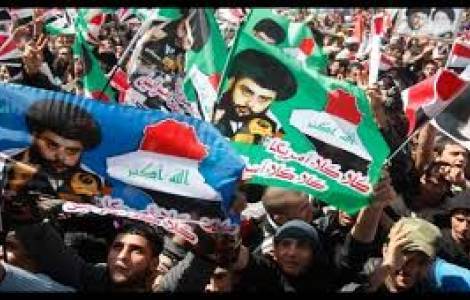
Baghdad (Agenzia Fides) - Thanks to the campaign of the Shiite leader Muqtada al Sadr, more than eighty properties - land and houses - have been returned to their rightful owners, including mostly Christians, citizens and Mandaeans after they have been victims of arbitrary and unlawful appropriation of their property by individuals or in recent years organized groups. Hakim al Zamili, a leading member of the "Sadrists" (supporter of the political group led by Muqtada al Sadr), who also previously chaired the Iraqi Parliamentary Committee on Security and Defense, reported on the results achieved so far thanks to the iniziative inspired by Muqtada al Sadr.
In a statement released by various Iraqi media on Wednesday, August 25, Al-Zamili stated that the last of the properties returned to their rightful Christian and Mandaean owners are in the Baghdad area, and that the committee set up ad hoc on the instructions of Al-Sadr to accompany the return has so far collected more than 140 return requests from Christian and Mandaean citizens who had been the victims of illegal expropriation of their real estate in recent phases of Iraqi history.
At the beginning of the year (see Fides, 4/1/2021), the Iraqi Shiite leader Muqtada al Sadr ordered the establishment of an ad hoc committee. This committee was tasked with collecting and reviewing information and complaints about cases of abusive expropriation of real estate by Christian and Mandaean owners in different regions of the country in recent years. The aim of the initiative launched by the Shiite politician was to restore justice and end the violation of the property rights of "Christian brothers and sisters", even if these violations were committed by members of his own movement. The request to report cases of illegal expropriations has been extended to include Christian families who have left the country in recent years, with a request to submit reports of fraudulent expropriations to the committee by the end of next Ramadan.
The phenomenon of illegal theft of Christian homes was able to spread thanks to connivance and cover-ups of corrupt and dishonest officials, who put themselves at the service of individual impostors and organized groups of fraudsters (See Fides, 23/7/2015). Last but not least, the "legalized" theft of property from Christian families is closely related to the mass exodus of Iraqi Christians, which has intensified since 2003 after the US-led military interventions to overthrow Saddam Hussein's regime. Houses and properties that were unguarded were seized because it was assumed that none of the owners would return to claim their property.
The controversial Shiite leader Muqtada al Sadr is also known to have been the founder of the Mahdi army, the militia - officially disbanded in 2008 - created in 2003 to fight the foreign armed forces present in Iraq after the fall of Saddam Hussein's regime. Analysts have seen several changes over the past decade by the leader, who dissolved his militia in 2008 and does not appear to be aligned with Iran. In the past, in the Iraqi political scenarios of recent years, Muqtada al Sadr has also tried to profile himself as a potential mediator. His visit to Saudi Arabia in July 2017 to meet Prince Mohammed Bin Salman was also interpreted in this perspective. (GV) (Agenzia Fides, 26/8/2021)
 ASIA/SYRIA - An office opened in Raqqa to "protect" the properties of Christians in north-east Syria
ASIA/SYRIA - An office opened in Raqqa to "protect" the properties of Christians in north-east Syria